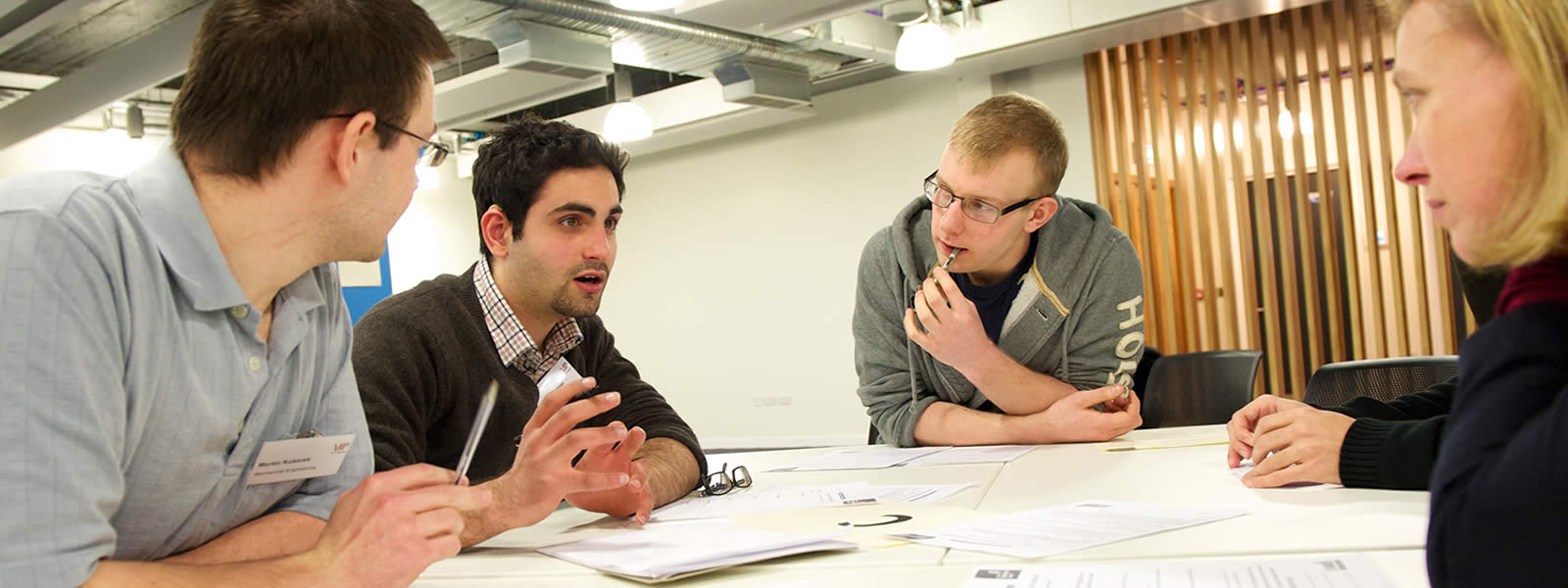Is this course right for me?
Target Audience: Postgraduate Research Students
Effective leadership skills and the ability to support productive collaboration in a team are not only required by those already in a formal leadership role. Leadership and teamworking skills can help everyone achieve their desired work objectives through effective collaboration. Any PGR student looking towards their future career, whether in academic or commercial research or any other field, will benefit from understanding and being able to demonstrate the characteristics of good leadership. Understanding how to develop effective teamworking – whether as team leader or from within a team – will not only allow individuals to get things done in the service of the team’s objectives and their own personal goals, but can also enhance their career progression.
In this course participants will be introduced to tools that can be used during their research degree and beyond. They will learn the characteristics of good leadership and understand the skills and attitudes that underpin good leadership. Attendees will also understand how to create effective teams and learn practical techniques to support team development and well-functioning collaboration. Furthermore, they will learn the principles of effective communication in teams and simple negotiation skills to improve collaboration and reduce conflict.
As a foundation for the course, participants will learn the versatile ‘DISC behavioural framework’, a powerful tool for leadership development and effective teamworking. Drawing on DISC, they will identify their leadership strengths and personal leadership development priorities. They will learn techniques to motivate and influence team members in order to ensure individuals and the team are committed to teamwork and joint objectives. They will also learn how to reduce conflict and miscommunication to avoid potential obstacles in effective teamworking.
By the end of this 2-day onsite course participants will have:
• Gained clarity on the nature of leadership, and the qualities needed to be an effective leader
• Learned the DISC behavioural profiling framework and created a self-assessed personal leadership profile identifying their personal leadership style, its strengths, motivations, limitations and development needs
• Understood how to build successful teams and learn a range of models to understand and manage group and team processes
• Used DISC as a tool understand others and devised effective strategies for managing and motivating individual team members
• Learned and practised negotiation techniques to resolve conflict and create commitment and buy-in from team members
Delivered By: Fistral Training
Prerequisites
This course is part of the Strathclyde Researcher Development Programme (RDP). All PhD students at Strathclyde will be required to achieve a certain number of credits in order to sit the Viva. Those registered on the Postgraduate Certificate in Researcher Professional Development (PG Cert RPD) are required to undertake 60 credits worth of transferable skills training over the course of the PhD. The majority of opportunities within the RDP have a credit value and therefore PhD students, particularly those registered on the PG Cert RPD, are encouraged to participate in this programme. Please check with your department/Supervisor to confirm the number of credits your expected to achieve if you’re unsure. Research staff should aim to undertake approx. 10 days of professional development per year. Please ensure that your Supervisor/Manager is supportive of your continued and professional development and make them aware of the training you are undertaking. PhD students should also record their training post-activity in the PGR monitoring Systems, Neptune (HaSS, Engineering and SBS) or Spider (Science). Cancellation Policy If you are unable to attend a course please cancel your place as soon as possible, with at least 3 working days notice via the online booking system http://bookings.strath.ac.uk/mybookings.asp. Full details of booking conditions can be found at the link below.Useful Links
Find out about the opportunities available to you as an early career researcher:PG Certificate in Researcher Professional Development
All postgraduate research students are eligible to access the Researcher Development Programme workshops. This workshop can contribute towards the PG Certificate in Researcher Professional Development (PG Cert RPD).
You can find credit and class information in the Researcher Development Programme Handbook and in NEPTUNE (Engineering, HaSS) or SPIDER (Science).
Please check with your department or Supervisor to confirm if you are enrolled on the PG Cert RPD and how many credits you are expected to achieve if you are unsure.
